We need to talk about Max Verstappen. This is the second time in my career I have written that sentence – but some things don’t change.
The first was after the Saudi Arabian Grand Prix in 2021, when the Dutchman’s aggressive methods of wheel-to-wheel combat reached an apex in his F1 drivers’ title fight against Lewis Hamilton. Simply put, he was not playing fair.
I have always been an advocate for the dark arts in sport, and even outright and blatant underhanded tactics.
Anything an athlete needs to do within the rules to obtain a psychological advantage – or even a physical one – over their competitor is fair game. Even when against the spirit of those regulations.
But what was seen in Jeddah that night was plainly and deliberately outside of the rules. We saw that again at the Spanish Grand Prix.
It not only undid all of his excellent work at the Circuit de Barcelona-Catalunya, but much of Red Bull’s, too. It also potentially did his F1 drivers’ championship hopes irreparable harm, but that is almost beside the point. It is far more serious than that.
Previous editions of The Scoop
A strategic misjudgment
There has been considerable criticism of Red Bull in the aftermath of the race for the cruel and painful reality that its miscalculations were the catalyst for the flashpoint that saw Verstappen crash into the side of George Russell.
This reproach has manifested twofold. First, the decision to pit him for hard tyres under safety car conditions, leaving him third and powerless to defend from Charles Leclerc and the Mercedes behind, as opposed to leaving him out in the lead on ageing soft-compound Pirellis to battle against the McLarens on fresh rubber.
The team’s three-stop strategy meant there were no new soft or medium tyres available to Verstappen, which is what he was expecting when he called for a different set during the late-race interlude.
Second, there was the call from Red Bull for him to hand fourth place to Russell to avoid being penalised for leaving the track and gaining an advantage when the pair clashed in Turn 1 at the safety car restart.
The former appears to be a mistake, but potentially only because of the huge sideways snap suffered on the exit of the final corner that saw Verstappen lose traction and become a sitting duck for the aforementioned duo behind.
It was an incredible moment of car control from the four-time drivers’ champion, but it is a considerable factor in what happened next.
And as Christian Horner highlighted after the race, "You're faced with the choice of a brand-new set versus an eight-lap-old set that has taken a bit of a pounding... With 20-20 hindsight, it's very easy to say, 'Stay out'... But you can only go with the information you have to hand."
The Red Bull team principal also pointed out the McLarens would have passed Verstappen. At which point, he would have been vulnerable to Leclerc and Russell anyway, even if there were only a few laps left of the 66-lap race. Pitting for hards, in theory, gave him a fighting chance at holding onto third.
Unjust criticism
Horner’s point can, and should, be applied to the latter error, because criticism aimed at the call to ask Verstappen to move aside is at best misguided and at worst disingenuous.
Already running hot for a variety of pre-safety car reasons and Red Bull’s decision to put hard tyres on his RB21, Verstappen was further aggrieved by the contact with Leclerc on the start/finish straight and being forced wide by the contact from Russell in Turn 1.
The proverbial straw that broke the camel’s back was then being recommended he relinquish his position to the British driver, and it is ultimately what induced the fit of apoplectic rage that saw Verstappen instigate further contact with the Mercedes at Turn 5.
The reason for that call was because he had taken to the run-off area of Turn 1 and remained ahead of Russell, something that saw him penalised in Saudi Arabia earlier this year when the Milton Keynes team opted not to ask Verstappen to hand his position to Oscar Piastri.
The unforeseen twist in the tail was the FIA stewards later revealing, in the decision document for the Dutchman’s 10-second time penalty, that they had no intention of penalising him for the Turn 1 incident, as Russell had lost control of his W16 with a sideways snap that initiated the contact that sent Verstappen wide.
So, in short, a blunder on Red Bull’s part, and one that triggered Verstappen into slowing down on the exit of Turn 4, letting the Mercedes alongside, before accelerating into Turn 5, where his car hit Russell’s.
However, it was next to impossible to anticipate that the officials would have sided with Verstappen for that first incident.
Based on the fact that Russell had claimed the apex and made the corner, and on precedent and all the information available to Red Bull at the time, the team made the right call. Only later would replays show the extent to which the Briton had lost control of his Mercedes in the wake of Leclerc ahead.
But that counts for nothing anyway, as Verstappen is responsible for his own actions - and no one made him retaliate in the incomprehensible and dangerous way in which he did.
'Does it matter?'
Evidently, Verstappen completely lost his head. But his immediate inability to appreciate the gravity of his response is concerning.
When asked by Sky Sports F1 after the race whether his contact with Russell was deliberate, he flippantly replied: "Does it matter?"
It matters a great deal and the 27-year-old appeared to have entirely missed the point, which is you do not, under any circumstances, do that in racing.
On Monday, he took steps to accept responsibility by admitting it was "not right" and "shouldn't have happened" as part of a 'non-apology' apology statement shared to social media.
Horner would later reveal Verstappen did apologise internally at Red Bull, but the accountability was nevertheless a day late and a dollar short, to borrow a Martin Brundle-ism.
Verstappen's conduct prior to that was in stark contrast to Alex Dunne, who over the weekend in Barcelona acknowledged he sometimes needs to "rein it back a bit" after a spate of recent incidents.
The fact Victor Martins angrily exclaimed: "Who does he think he is, Max Verstappen?" after the McLaren junior caused the F2 feature race pile-up in Monaco should not be lost on anyone.
Fair punishment?
During the grand prix, when Verstappen saw red, Nico Rosberg - on commentary for Sky Sports F1 - instantly called for him to be black-flagged
But the stewards ventured nowhere near disqualification. Instead, they opted for a swift hand of justice through a 10-second time penalty after the chequered flag, which dropped the Red Bull driver from fifth to 10th.
More consequentially, three penalty points were added to his FIA super licence, taking his tally for the past 12-month period to 11. Verstappen now must navigate the next two rounds without any further incident. If he cannot, and he surpasses 12 points by the end of the Austrian Grand Prix, he will face a race ban.
In the most recent episode of the RacingNews365.com podcast, when asked for my views on the penalty, I said: "The three penalty points are fair.
"I think it could have been more than 10 seconds; it could have been a drive-through, it could have been a 10-second stop-go... I think also a disqualification would have been fair.
"I don't know if I land on any one with any certainty, but I do think I probably would have given more than 10 seconds myself."
I regretted that almost straight away, because Verstappen's conduct was inexcusable and more than worthy of disqualification. That is how I felt in the moment, and still do.
Something has got to give
The punishment of three penalty points is also an intriguing one, because it leaves him on the precipice. Even after he drops down to nine points after Red Bull's home grand prix, the threat of suspension will loom over him until October - arguably, a worse fate for him than being immediately sidelined.
But to even be in that position speaks volumes and is further empirical evidence to the truth that Verstappen refuses to change - which is where harsher penalties may start to be warranted.
It should come as no surprise, too. We saw it when he was forging his path earlier in his F1 career, and he insisted he would not change.
It was evident with controversial moments in 2021, as was last season with the incidents that helped bring him to the cusp of a ban. Now, into his second decade in F1, something has to give.
Only he will know for certain what his intentions were in Spain, but there was no doubt in my mind it was deliberate, which his statement now supports.
Whether that means he simply wanted to force Russell wide or actually make contact, we do not know, but it is getting harder and harder to defend - or even justify or explain - how he operates on track.
A legacy overshadowed
You wonder, as I have argued before in this column, if Red Bull's usual unwavering defence of Verstappen - even when he is at fault - has emboldened him to the point the team cannot control him. Where he was recommended to hand the position to Russell, other drivers would have been instructed.
Is it an environment in which he is unassailable and unimpeachable? His reaction during the Spanish Grand Prix suggests so. Perhaps that is where Red Bull has got it the most wrong.
He appears unable to handle being challenged, like at the Hungarian Grand Prix last year. It is something Russell touched on in Abu Dhabi in December, as the pair engaged in a war of words in the fallout of the tensions from Qatar.
"He cannot deal with adversity," he said. "Whenever anything is not going his way, he lashes out with unnecessary anger and borderline violence.
"We've seen it in Brazil in the past with [Esteban] Ocon. You saw it in '21 with Lewis, and then Mexico [in 2024] with Lando [Norris]... in Budapest when he didn't have the most dominant car, crashes into Lewis, slamming his whole team..."
Those marks of madness are not unique to Verstappen. We have seen it in the past, most notably with Ayrton Senna and Michael Schumacher.
The former intentionally took out Alain Prost in the first corner at Suzuka in 1990, and the latter deliberately crashed on two occasions, in 1994 and 1997, into Damon Hill at Adelaide and Jacques Villeneuve at Jerez, respectively.
Although no excuse, all three were at season finales and with a championship on the line. Schumacher was disqualified from the championship that year for his second offence.
But the Red Bull driver is at serious risk of tarnishing his legacy. He is undoubtedly brilliant, but at what cost?
Also interesting:
Join RacingNews365's Ian Parkes, Sam Coop and Nick Golding, as they discuss last weekend's Spanish Grand Prix! Max Verstappen's clash with George Russell is a major talking point this week, as is whether Lewis Hamilton has started to contemplate if he is still quick enough.
Rather watch the podcast? Then click here!
Don't miss out on any of the Formula 1 action thanks to this handy 2026 F1 calendar that can be easily loaded into your smartphone or PC.
Download the calenderMost read
In this article
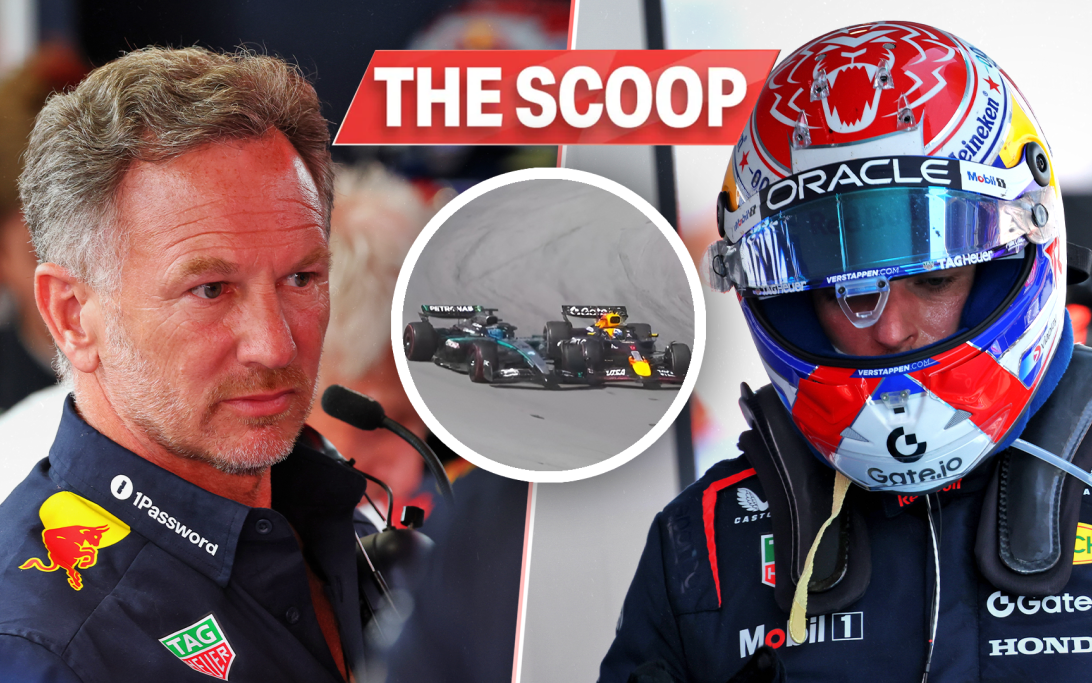
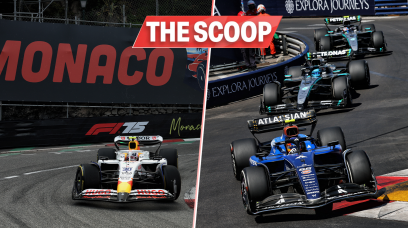
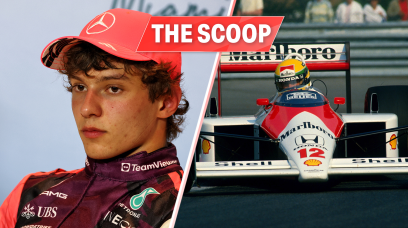
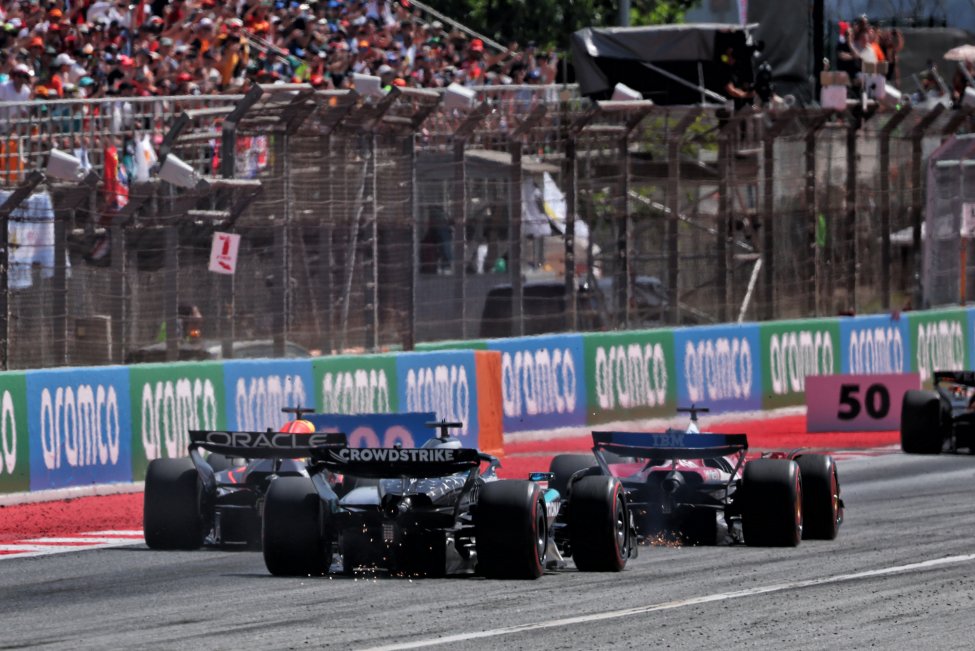
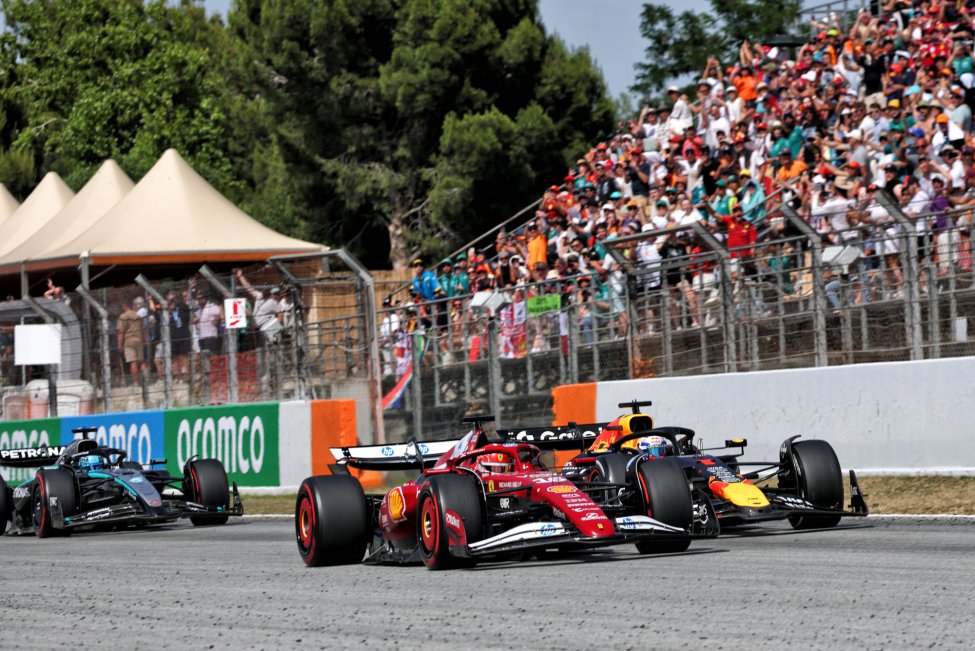
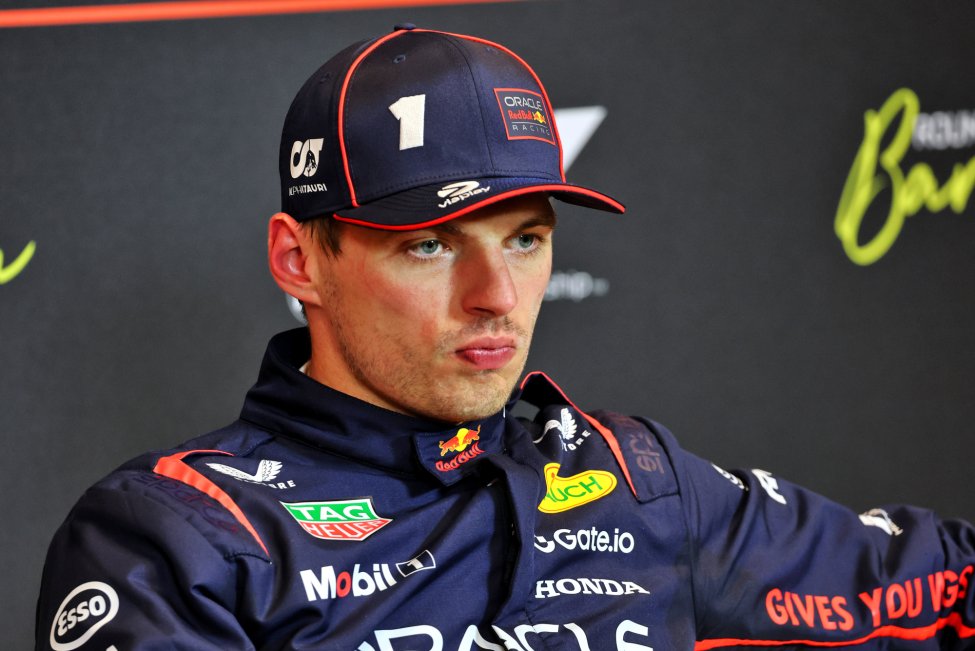
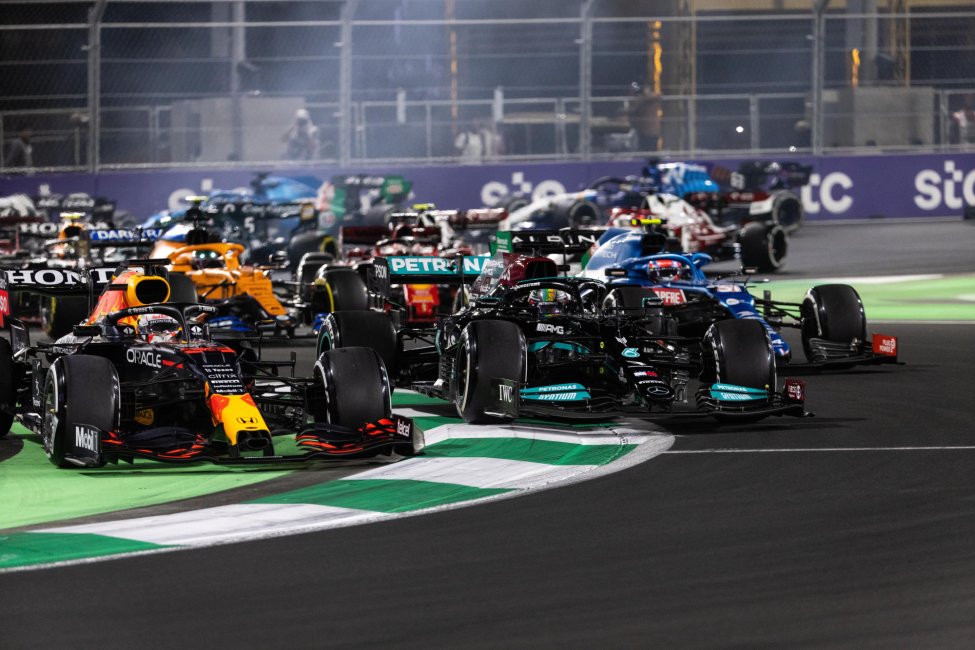
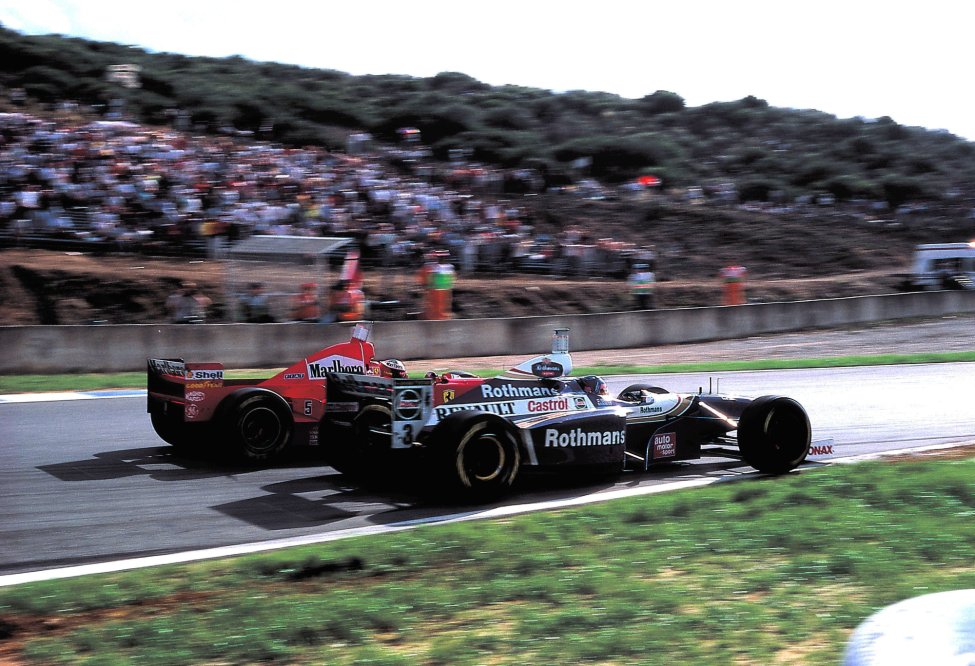


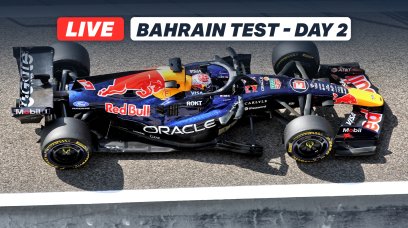
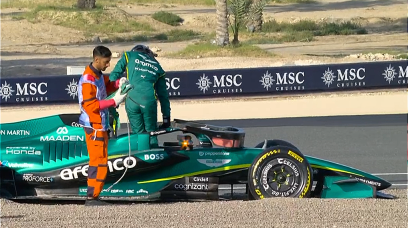
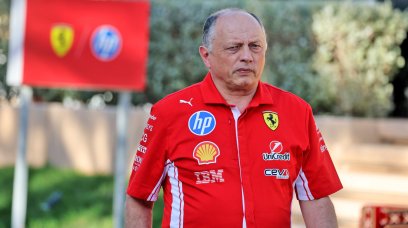
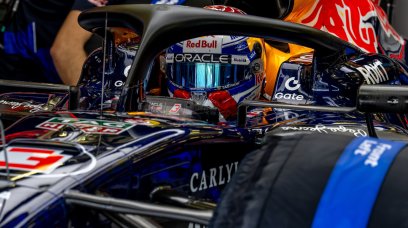
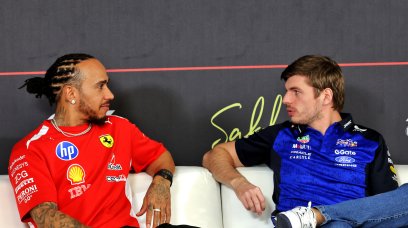
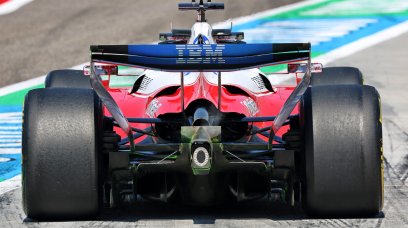
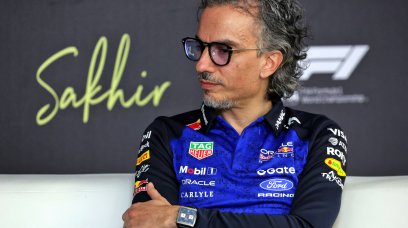
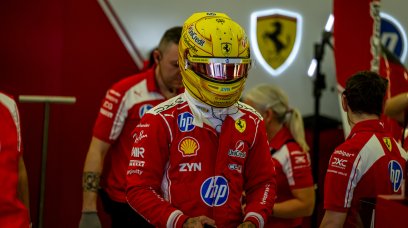
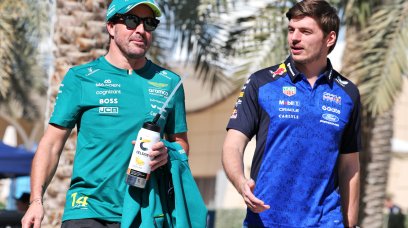
Join the conversation!